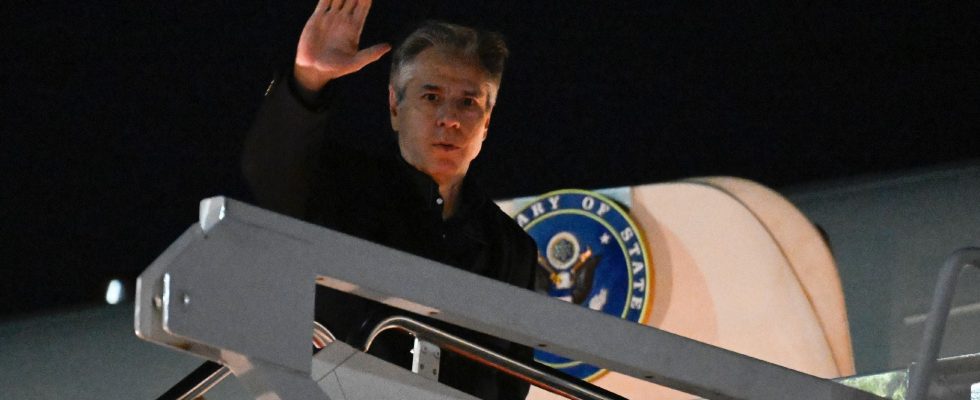Fourth African tour for Antony Blinken. One year after the United States-Africa summit, the American Secretary of State returned on site this Monday, January 22. A trip which takes place in a context of strong Russian and Chinese presence in the region. Presence which has tended to increase for several years.
And it is precisely for this reason that the United States does not intend to cede ground to the two giants. This tour will thus be placed under the sign of “the future”, rejoices Molly Phee Assistant Secretary of State for African Affairs. And to assure: “We want to underline our response to African concerns.”
For his part, the spokesperson for the State Department, Matt Miller, emphasized the economic and commercial issues of this visit. “We have challenges on the African continent, but… we also have a lot of opportunities that the president and the secretary of state have made a priority.”
Strengthen economic and commercial relations
And for good reason, several large-scale projects in close collaboration with the United States are already on track. This is the case for infrastructure linking the Democratic Republic of Congo and Zambia via the port of Lobito, in Angola. Or even partnerships in health and food security, “based on respect for human rights, the promotion of democracy and the extension of the rule of law” which Washington wishes to “advance”.
Antony Blinken’s next few days promise to be busy. On the program, four countries: Cape Verde, Ivory Coast, Nigeria and Angola. First stop on his tour, Cape Verde. The stopover is quick, but no less important. The United States has given some 150 million dollars – or around 138 million euros – through two programs. Including the expansion of the port of the capital, Praia, as well as the improvement of roads and the drinking water distribution system. A third aid program is currently under study.
Help maintain regional stability
Monday evening, the head of American diplomacy will set down his bags in Abidjan, where Ivory Coast is playing a decisive match for the African Cup of Nations (CAN) which it is currently organizing. Aiming to encourage stability and avoid conflict in coastal countries Benin, Ghana, Guinea, Ivory Coast and Togo, the Biden administration announced a ten-year plan last year to fight against terrorism. Antony Blinken should particularly welcome the consolidation of democracy since Alassane Ouattara came to power in 2011.
Because although it borders Mali and Burkina, Yamoussoukro has so far managed to stem the jihadist threat hovering over the region. A study by the International Crisis Group (ICG) observes in particular a change in the approach of the Ouattara government. For several years, the Ivorian executive has been active on two fronts: a firm military response and economic development of the areas concerned, particularly for young people. And the strategy seems to be bearing fruit since the last incident linked to these armed groups in the north of the country dates back to the beginning of 2021.
Influence struggles
A few days earlier, Antony Blinken’s Chinese counterpart also toured Africa. In Togo, then in Tunisia. Before ending with a stopover in Egypt. A trip which is part of a context of China’s economic deployment on the continent. And for good reason, for around ten years, Beijing has been very active on the continent, notably financing infrastructure in many countries.
Like Russia, which year after year is gaining ground in a certain number of French-speaking African countries, managing to create a real base on the continent. A position that Moscow cultivates thanks to its privileged relations with Burkina Faso. Without forgetting, the recent presence of soldiers from the Wagner paramilitary group in the Central African Republic and Mali. Their leader, Evgueni Prigogine, had just returned from a trip to Africa when his plane going from Moscow to Saint Petersburg crashed on August 23.
